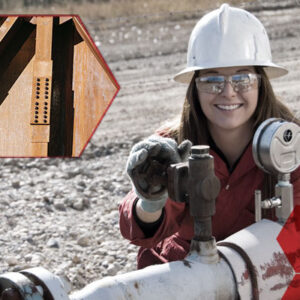Guarding Against Corrosion: The Crucial Role of Coating Inspector Courses in the Oil and Gas Industry
Introduction

In the realm of the oil and gas industry, the battle against corrosion stands as a paramount challenge. Corrosion can compromise the integrity of critical infrastructure, leading to catastrophic consequences. One pivotal line of defense in this ongoing struggle is the expertise provided by Coating Inspectors. These professionals play a crucial role in ensuring that protective coatings, vital for safeguarding assets against corrosion, are applied and maintained effectively. This article delves into the significance of Coating Inspector courses in the oil and gas industry, emphasizing their role in upholding infrastructure durability and safety.
Brief overview of the Oil and Gas Industry

The oil and gas industry is a multifaceted sector encompassing exploration, extraction, refining, and transportation of hydrocarbons. These processes often involve the utilization of intricate infrastructures, such as pipelines, storage tanks, and offshore platforms. However, these assets are constantly exposed to harsh environmental conditions, including corrosive elements. Corrosion, the gradual deterioration of materials due to chemical reactions with the environment, poses a substantial threat to the structural integrity of these assets.
To mitigate the impact of corrosion, protective coatings are applied to surfaces, serving as a barrier between the infrastructure and corrosive agents. This is where the role of a Coating Inspector becomes pivotal. These professionals are responsible for ensuring that coatings are applied correctly, adhere to industry standards, and are regularly inspected for any signs of wear or damage. The demand for skilled Coating Inspectors has grown significantly as the industry recognizes the critical need for effective corrosion prevention strategies.
As we navigate through the intricacies of the oil and gas industry, it becomes evident that the reliability and durability of infrastructure hinge on the competence of Coating Inspectors. The subsequent sections will elaborate on the training courses designed to equip individuals with the necessary skills to become proficient Coating Inspectors, underscoring their indispensable role in preserving the longevity and safety of oil and gas assets.
Significance of corrosion control in the industry
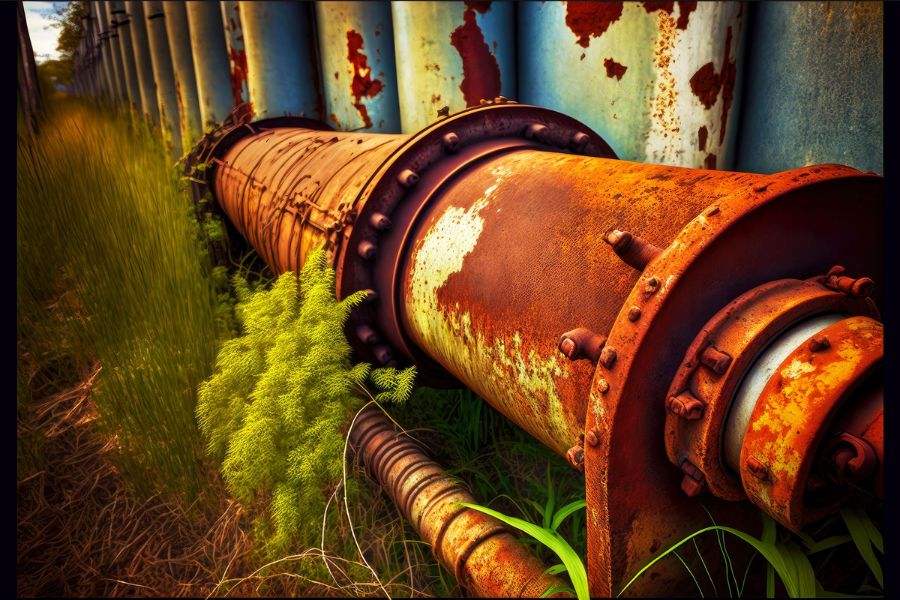
Corrosion control is a pivotal aspect within the oil and gas industry, where infrastructure and equipment are constantly exposed to harsh environmental conditions. The term corrosion refers to the gradual deterioration of materials due to chemical reactions with the surrounding environment, such as moisture, oxygen, and various chemicals. In the oil and gas sector, this corrosion poses a substantial threat to the integrity of critical components, including pipelines, storage tanks, and drilling equipment.
The significance of corrosion control lies in its ability to prevent structural failures, leaks, and environmental hazards that can result from the degradation of materials. The financial implications of corrosion-related issues are considerable, with maintenance costs, downtime, and potential environmental fines being significant concerns. Moreover, the safety of personnel is at stake when corrosion compromises the structural integrity of equipment. Therefore, implementing effective corrosion control measures is imperative for the oil and gas industry to ensure the longevity, safety, and reliability of its infrastructure.
Pain Points in Corrosion Control
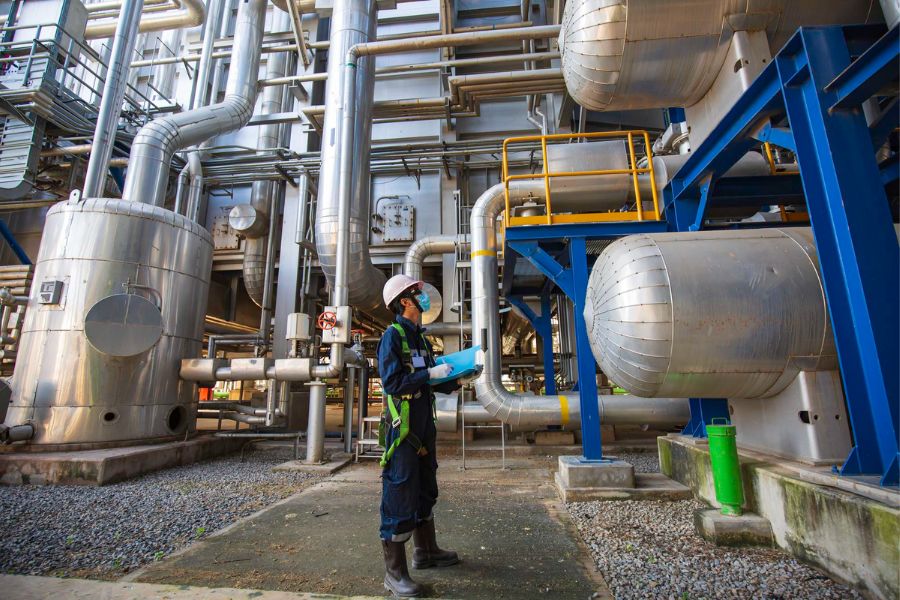
Corrosion poses significant challenges in various industries, with the oil and gas sector being particularly susceptible to its detrimental effects. The relentless battle against corrosion requires a comprehensive understanding of its pain points for effective control. Coating inspectors play a pivotal role in this domain, as they are at the forefront of preventing corrosion through meticulous assessments and evaluations.
In the oil and gas industry, the harsh environmental conditions and corrosive substances present in drilling, production, and transportation processes make corrosion control a top priority. The financial repercussions of corrosion-related damage, including equipment failure and downtime, underscore the critical need for proactive measures.
Coating inspectors are tasked with identifying vulnerable areas and ensuring that protective coatings are applied correctly and consistently. Their expertise is instrumental in addressing pain points such as uneven coating application, premature coating failure, and the selection of inappropriate coating materials. Through specialized training in coating inspector courses, professionals acquire the skills needed to tackle these pain points head-on, enhancing the overall corrosion control strategy in the oil and gas industry.
Corrosion as a major challenge

Corrosion stands as a formidable adversary in the oil and gas industry, posing a multitude of challenges that demand meticulous attention and strategic solutions. The integrity of assets, safety standards, and operational efficiency are all compromised in the face of corrosion, making it a major concern for industry stakeholders.
In the context of oil and gas operations, the corrosive elements present in the fluid handling systems, pipelines, and storage tanks accelerate the deterioration of metallic structures. This not only jeopardizes the structural integrity of equipment but also increases the risk of environmental disasters and safety hazards.
Coating inspectors emerge as crucial figures in combating corrosion’s pervasive impact. Their role extends beyond mere application oversight, encompassing the assessment of coating adherence, surface preparation, and post-application inspections. The significance of their work becomes evident in mitigating the major challenges posed by corrosion, including material degradation, loss of productivity, and compromised safety standards.
Environmental and economic consequences

The consequences of corrosion extend beyond the immediate operational disruptions, encompassing both environmental and economic dimensions. Corroded pipelines and equipment can lead to hazardous material leaks, causing soil and water contamination, which in turn poses severe environmental threats. The costs associated with environmental remediation, regulatory penalties, and potential litigation amplify the economic impact.
Furthermore, the oil and gas industry, already operating in a dynamic and competitive landscape, can ill-afford the economic losses resulting from corrosion-related issues. Coating inspectors, equipped with specialized knowledge gained through coating inspector courses, act as a frontline defense against these consequences. By ensuring that coatings are applied correctly and continually monitoring their condition, they contribute to the industry’s sustainability and resilience, mitigating the environmental and economic risks associated with corrosion.
Factors Contributing to Corrosion in the Oil and Gas Industry
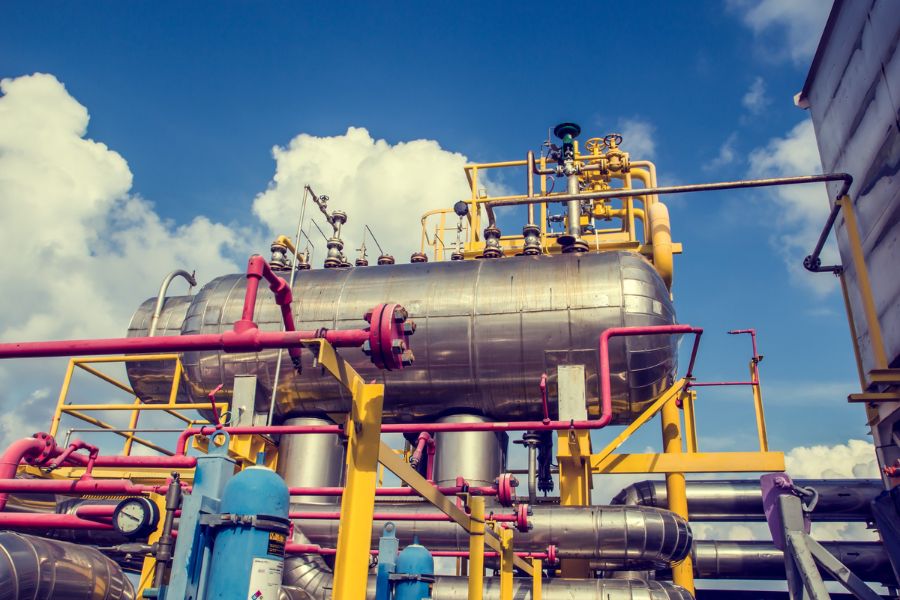
Corrosion in the oil and gas industry is a pervasive and costly issue that can compromise the integrity of critical infrastructure. Several factors contribute to the occurrence and acceleration of corrosion, necessitating a proactive approach to protection. One significant factor is the corrosive nature of hydrocarbons and other substances present in the oil and gas extraction and transportation processes. These substances, when in contact with metal surfaces, can initiate corrosive reactions, leading to material degradation.
Another crucial contributor is the presence of impurities and contaminants in the extracted fluids. These impurities can act as catalysts for corrosion reactions, accelerating the deterioration of pipelines, storage tanks, and other equipment. Furthermore, environmental conditions, such as high humidity, extreme temperatures, and exposure to saline environments, exacerbate the corrosion risk. These factors collectively underline the importance of implementing robust corrosion protection measures in the oil and gas industry.
Harsh operating conditions

The oil and gas industry often operates in harsh and challenging environments, subjecting equipment and infrastructure to extreme conditions that accelerate corrosion. Harsh operating conditions include exposure to high temperatures, aggressive chemicals, abrasive particles, and fluctuating pressures. These conditions can lead to accelerated wear and tear on metal surfaces, making them more susceptible to corrosion.
In offshore drilling operations, for instance, structures are exposed to corrosive saltwater, constant wave action, and variable weather conditions. Similarly, onshore facilities may face challenges such as exposure to corrosive gases, soil moisture, and temperature extremes. The combination of these harsh operating conditions and the intrinsic corrosive nature of the industry’s processes underscores the critical need for effective corrosion protection measures.
Chemical exposure

Chemical exposure plays a pivotal role in the corrosion of infrastructure within the oil and gas industry. The presence of corrosive substances in the production, transportation, and processing of oil and gas necessitates a thorough understanding of the potential impacts and the implementation of protective measures.
1. Hydrogen Sulfide (H2S): Hydrogen sulfide is a common byproduct in oil and gas operations, and its presence can lead to severe corrosion of metal surfaces. Coating inspectors must be well-versed in identifying and assessing the impact of H2S exposure on coatings and substrates.
2. Carbon Dioxide (CO2): Carbon dioxide, when present in high concentrations, can contribute to corrosion in the oil and gas industry. Coating inspectors need to be equipped with knowledge about the specific corrosive mechanisms associated with CO2 exposure and how to mitigate its effects through effective coatings.
3. Acidic Compounds: Various acidic compounds may be encountered in the oil and gas industry, posing a risk to metallic structures. Coating inspector courses should emphasize the identification of potential sources of acidity and the selection of coatings capable of withstanding exposure to such corrosive agents.
Importance of Corrosion Control Courses like Coating Inspector
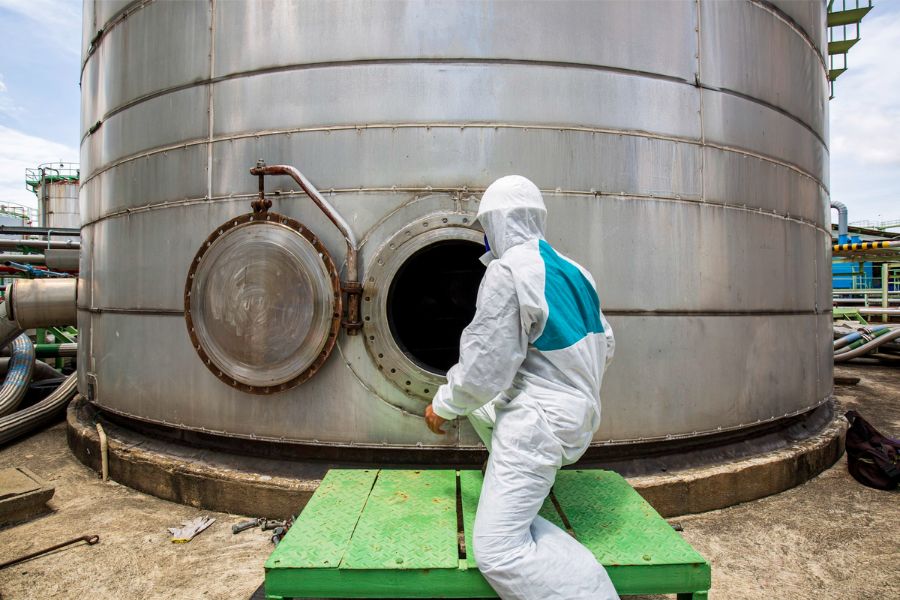
Corrosion poses a significant threat to the integrity of structures in the oil and gas industry, leading to potential safety hazards, environmental concerns, and financial losses. To combat this issue, corrosion control courses, particularly those focused on coating inspection, play a crucial role.
1. Mitigating Corrosion Risks: Coating inspectors are trained professionals who specialize in evaluating and ensuring the effectiveness of protective coatings applied to surfaces in the oil and gas sector. These coatings act as a barrier against corrosive elements, safeguarding critical infrastructure such as pipelines, storage tanks, and drilling equipment. Corrosion control courses, with a specific emphasis on coating inspection, empower professionals with the knowledge and skills to identify vulnerabilities and take preventive measures.
2. Ensuring Regulatory Compliance: The oil and gas industry operates under stringent regulations, and adherence to corrosion control standards is paramount. Coating inspector courses provide individuals with an in-depth understanding of industry-specific regulations and standards. This knowledge enables them to ensure that the protective coatings applied to various components meet or exceed these standards, avoiding regulatory penalties and ensuring the safety and reliability of the infrastructure.
3. Cost-Effective Maintenance: Preventing corrosion through effective coating inspection is a proactive approach to maintenance. By identifying potential issues early on, companies can avoid expensive repairs or replacements caused by corrosion-related damage. Coating inspector courses equip professionals with the skills to assess coating conditions, identify defects, and recommend appropriate maintenance strategies, contributing to long-term cost savings for oil and gas companies.
Overview of Coating Inspector courses
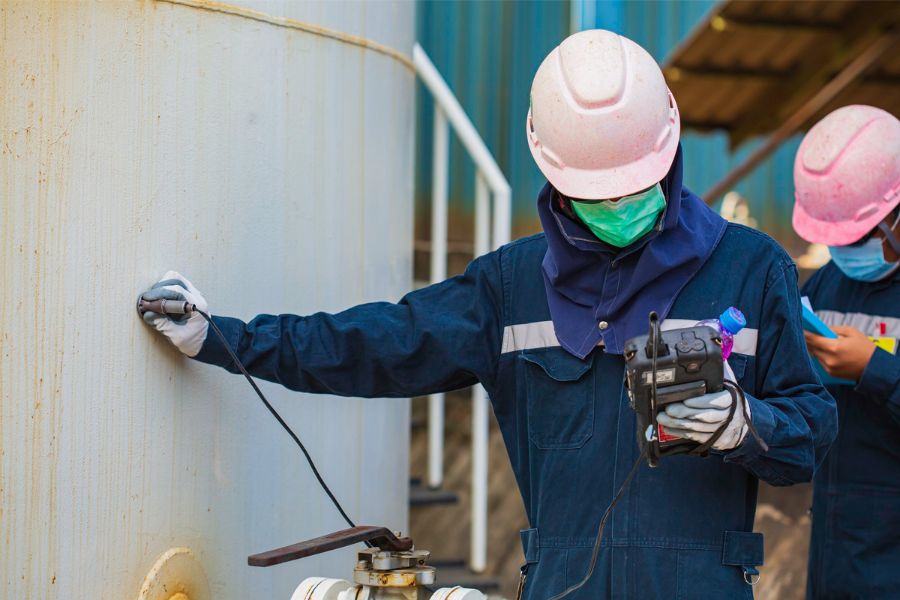
Coating inspector courses play a pivotal role in equipping professionals with the knowledge and skills required to excel in the field of corrosion control within the oil and gas industry. These courses cover a comprehensive range of topics, including corrosion mechanisms, coating types, application methods, and inspection techniques. The objective is to empower individuals with the ability to assess coating quality and ensure its compliance with industry standards.
Typically, coating inspector courses delve into the science behind corrosion, elucidating the factors that contribute to its occurrence. Participants learn about the different types of coatings, such as paints, primers, and specialty coatings, and gain insights into their specific applications in diverse environments within the oil and gas sector.
The curriculum of coating inspector courses often includes practical training sessions, where participants can hone their skills in inspecting coatings on various substrates. This hands-on approach allows them to familiarize themselves with industry-standard tools, measurement devices, and inspection protocols. Moreover, these courses often incorporate case studies and real-world scenarios, enabling participants to apply their knowledge in practical situations.
Role of Coating Inspectors in corrosion prevention
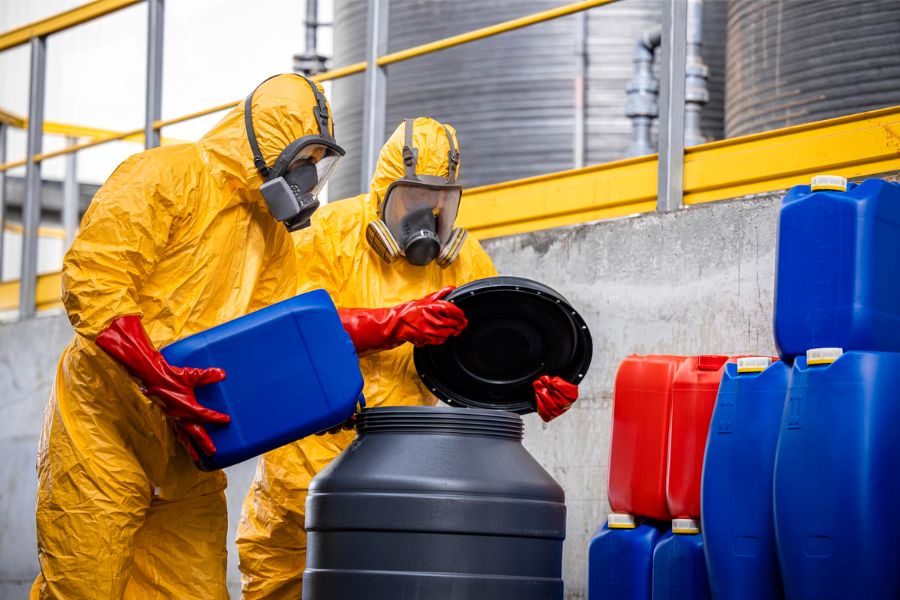
Corrosion poses a significant threat to the integrity and longevity of structures within the oil and gas industry. The role of coating inspectors is paramount in preventing and mitigating the impact of corrosion on vital equipment and infrastructure. Coating inspectors play a pivotal role in ensuring that protective coatings are applied effectively and meet industry standards. They act as the first line of defense against corrosive elements by meticulously inspecting coating applications on pipes, tanks, and other critical components.
Coating inspectors are responsible for assessing the condition of coatings, identifying potential vulnerabilities, and ensuring that the coating systems are compatible with the harsh operating environments typical in the oil and gas sector. Their expertise is crucial in selecting the right coating materials and application methods to withstand corrosive substances such as saltwater, acids, and chemicals commonly encountered in oil and gas operations.
In addition, coating inspectors monitor the coating process from its initial stages through completion, conducting thorough inspections at every stage to guarantee uniformity and adherence to specifications. They employ various inspection techniques, including visual inspections, thickness measurements, adhesion tests, and holiday detection, to ensure that the protective coatings effectively shield the infrastructure from corrosion.
Benefits of Investing in Coating Inspector Training

Investing in coating inspector training programs yields numerous benefits for the oil and gas industry. A well-trained and knowledgeable workforce of coating inspectors contributes to the overall corrosion prevention strategy and enhances the industry’s resilience against the detrimental effects of corrosion. Here are some key advantages:
1. Improved Quality Assurance: Coating inspector training emphasizes industry best practices, standards, and the latest technologies in coating application. This leads to improved quality assurance as inspectors are equipped with the skills to assess, evaluate, and ensure the proper application of coatings, reducing the likelihood of premature failures due to corrosion.
2. Enhanced Safety: Coating inspector courses also cover safety protocols and guidelines related to coating application processes. Ensuring that inspectors are well-versed in safety measures contributes to a safer working environment, reducing the risk of accidents and incidents during coating activities.
3. Cost Savings: Well-trained coating inspectors can identify potential issues early in the coating process, preventing the need for costly rework or repairs. This proactive approach to corrosion prevention can result in significant cost savings over the lifecycle of oil and gas infrastructure.
4. Compliance with Regulations: Coating inspector training ensures that inspectors are familiar with and adhere to industry regulations and standards. This compliance not only prevents legal issues but also promotes a culture of responsibility and accountability in corrosion prevention practices.
Conclusion
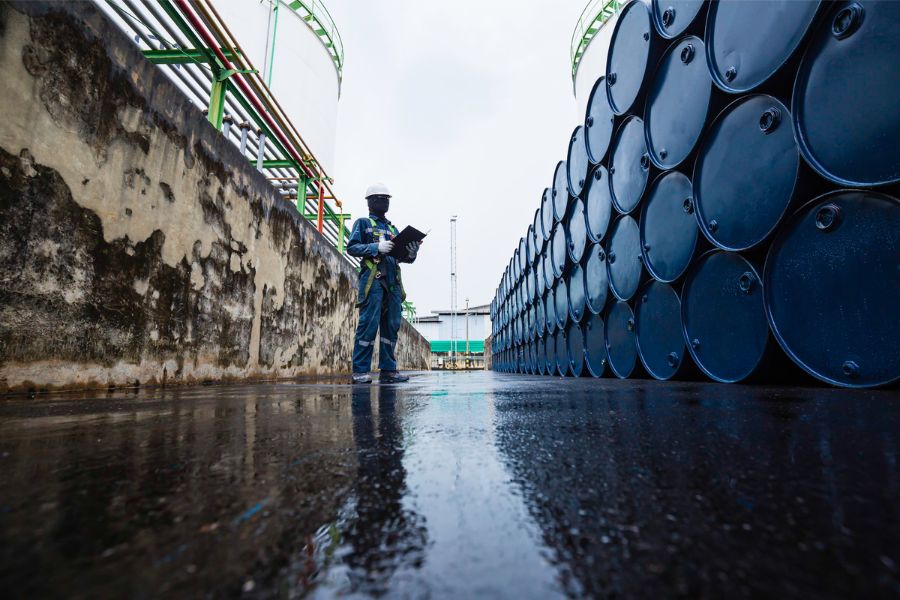
In conclusion, the pivotal role of coating inspectors in the oil and gas industry cannot be overstated, and their significance in guarding against corrosion is paramount. As highlighted throughout this exploration, the proper application and maintenance of protective coatings are indispensable for ensuring the longevity and integrity of vital infrastructure within the oil and gas sector. The specialized knowledge and skills acquired through coating inspector courses are crucial in identifying potential vulnerabilities, implementing effective corrosion prevention measures, and ultimately safeguarding valuable assets.
One institution at the forefront of providing comprehensive training in this critical field is the Corcon Institute of Corrosion. By offering cutting-edge coating inspector courses, Corcon Institute plays a key role in shaping highly skilled professionals equipped to address the challenges posed by corrosion in the oil and gas industry. As the demand for robust corrosion protection continues to rise, the significance of institutions like Corcon Institute cannot be overstated, as they contribute significantly to maintaining the industry’s operational reliability and environmental responsibility. In essence, the commitment to excellence in coating inspection education is instrumental in fortifying the industry against the corrosive forces that threaten its infrastructure.
FAQs
1. Why are Coating Inspector courses crucial in the oil and gas industry?
Answer: Coating Inspector courses are crucial because they equip professionals with the expertise needed to ensure the correct application of protective coatings. This is vital for safeguarding infrastructure against corrosion, a significant threat in the harsh environments of the oil and gas industry.
2. What role do Coating Inspectors play in corrosion prevention?
Answer: Coating Inspectors play a pivotal role in corrosion prevention by overseeing the application of protective coatings, ensuring adherence to industry standards, and conducting regular inspections. Their expertise helps identify vulnerabilities, mitigate risks, and contribute to the overall durability and safety of oil and gas assets.
3. What pain points do Coating Inspectors address in corrosion control?
Answer: Coating Inspectors address pain points such as uneven coating application, premature coating failure, and the selection of inappropriate coating materials. Through specialized training, they acquire skills to tackle these challenges, enhancing the effectiveness of corrosion control strategies in the oil and gas industry.
4. How do Coating Inspector courses contribute to environmental and economic resilience?
Answer: Coating Inspector courses contribute to environmental and economic resilience by training professionals to ensure correct coating application. This helps mitigate the consequences of corrosion, including environmental contamination and economic losses, thereby promoting sustainability and minimizing the industry’s impact.
5. What factors contribute to corrosion in the oil and gas industry, and how do Coating Inspectors address them?
Answer: Factors contributing to corrosion include chemical exposure, harsh operating conditions, and impurities in extracted fluids. Coating Inspectors address these by selecting appropriate coatings, ensuring proper application, and conducting inspections, thus playing a crucial role in protecting infrastructure from corrosion in the oil and gas sector.
Image Reference: Freepik
Disclaimer: All trademarks, logos, and brand names are the property of their respective owners. All company, product, and service names used in this website are for identification purposes only. Use of these names, trademarks, and brands does not imply endorsement.

